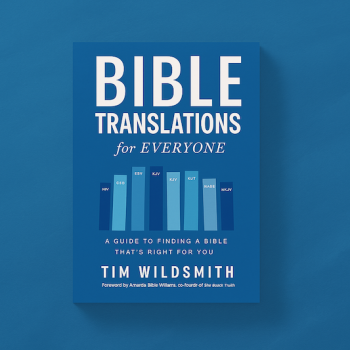Editor's Note: For the next four weeks, while in residence at Gladstone's Library in Wales, one of the world's great research centers for theology and politics, Greg Garrett will write about British religion, culture, and politics in hopes that these essays might shed fresh light on American issues.
We constantly invoke the giants of the past. The Tea Party quotes Founding Fathers, conservatives invoke Ronald Reagan, and politicians of both parties call on the authority of Abraham Lincoln or Franklin Delano Roosevelt to buttress their positions. Figures from the past also figure in British political life, and few are more prominent than William Ewart Gladstone, whose life encompassed almost the entire 19th century (1809-1898), that epoch during which England was the world's most powerful nation.
Gladstone is the only four-time Prime Minister in Britain's history, a towering figure in parliamentary life and popular politics for sixty years, and according to many observers of British history, one of the greatest men who ever served in political life. Gladstone fought for Irish Home Rule, reforms in education and voting rights, and human rights around the world, and his life was centered around a thoughtful and informed Christianity.
Gladstone is—sometimes to his detriment when people consider him today—a man who took both his religion and his politics extremely seriously. In modern Britain, where faith can mark a politician as somehow deformed, this twin heritage devalues Gladstone in some eyes. But in the States, where the Wall Street Journal this month reported that Americans would not consider electing an atheist (or a Muslim!) president, Gladstone's twin passions ought to make him particularly endearing, as should his timely interests in reconciliation, human rights, and the restrained use of military might. He is, like Lincoln, Reagan, Jefferson, and Roosevelt, a person whose life and work continues to speak to the events of our own day.
Gladstone was a prodigious reader and thinker (22,000 of his 33,000 books bear detailed annotations), and his primary bequest upon his death was to endow a library where students, clergy, writers, and others might read, write, and have conversation about the issues that so transfixed him; Gladstone's Library, in Gladstone's home village of Hawarden, North Wales, is the UK's sole prime-ministerial library (and only residential library), and offers an amazing witness to Gladstone's hope that bringing together people who would work solidly and seriously on issues confronting the world can bear beautiful fruit. As the Library's Warden, Peter Francis, is fond of telling people, in addition to articles, essays, sermons, and untold hours of consultation, teaching, and conversation, 500 books have been researched or written at the Library in recent years. Today, the Library works in conjunction with universities, churches, and other organizations to promote the values of its founder: a broadly liberal Christianity that embraces intellectual life, tolerance, and social justice.
Peter Francis has been Warden of Gladstone's Library for fourteen years. A scholar and Anglican priest, Francis has served churches or chaplaincies in Wales, Scotland, and England during his thirty-two years of ministry. Under his leadership, the Library has forged new partnerships working on urban and rural ministry studies, Muslim/Christian reconciliation, an ongoing Writer-in-Residence program, an American Friends program to take the offerings of the Library to an American audience, and the recent naming of the Archbishop of Canterbury, Rowan Williams, as Gladstone Professor of Literature and Theology at the nearby University of Chester.





